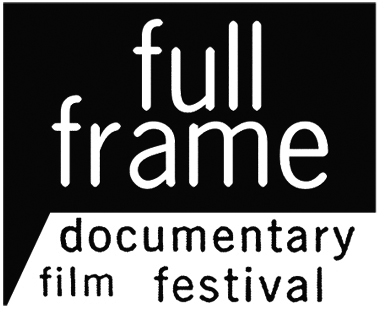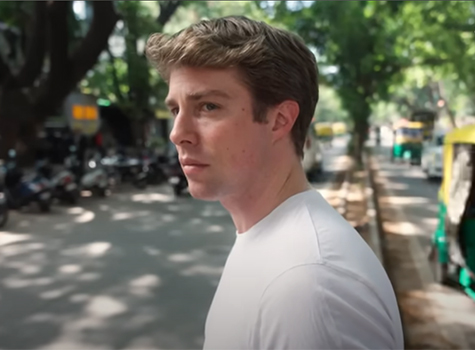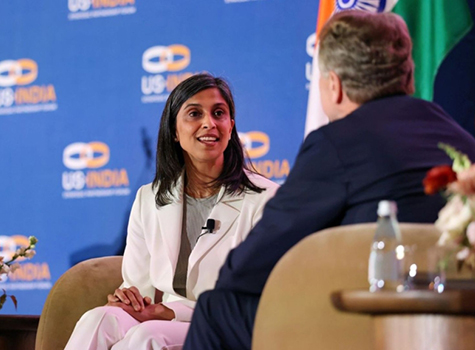
It seems like the 21st annual Full Frame Documentary Film Festival came and went within just a day or two. It ran from April 5 – 8, but was, as always, so full of fabulous stories that time flew. There were compelling stories for all ages and tastes; my 9-year-old daughter, for example, saw eleven films and wrote her own glowing reviews (I tweeted @dbarman; you can see her writeup on twitter).
Forty-two new documentaries were selected from almost 1,800 submitted. Twenty-two additional films were invited. In addition, Jehane Noujim, documentary filmmaker of films like Control Room, The Square, and Startup.com, was honored and four of her films shown. Filmmaker Joe Berlinger curated eight films on the topic of “Crime and Punishment.”
I can’t do justice to the many films that I saw in this one article. Let me start by describing some of my favorite films and then additionally mention some of the other ones.
The opening night film, RBG (Julie Cohen & Betsy West, 2018), sold out even before ticketing opened for all but the highest level passes. Thankfully, I had one ticket and loved the experience at the sold out (about 1000 seats) screening. This was a powerful night for women, ranging from the encouraging introductory comments by Deirdre Haj and Sadie Tillery of Full Frame to the film of an important modern cultural icon and fighter for justice and truth, and ending with the Q&A session with the all-women team of filmmakers.
Supreme Court Justice Ruth Bader Ginsburg, the daughter of Jewish immigrants, fought against prejudice to succeed as a woman raising two children. Although she was tied for the top student in her graduating class at Columbia Law School (she started as one of nine women out of a class of about 500 at Harvard), she had difficulty getting a job. Her story is beautifully revealed in this film made by women filmmakers. In addition to looking at some of the important cases that she was involved with, the film takes an intimate look at the remarkable relationship between her and her husband Marty.
My daughter and I had read a number of readily accessible books meant for children about the life of “RBG”. I recommend introducing children to this charming justice and then seeing the film.
RBG’s calm, step-by-step approach to seeking justice, especially for women and minorities, has earned her heroic stature in popular culture online as the “Notorious RBG” in a rap song and in skits by Kate McKinnon on Saturday Night Live. Her steadfast approach and positive focus on moving forward is evident in her body language and text of judicial reports. “I did see myself as kind of a kindergarten teacher in those days, because the judges didn’t think sex discrimination existed,” she offers when describing her early legal efforts for women’s rights.
The film is being released theatrically starting on May 4, 2018. Coincidentally, a biopic of Ruth Bader Ginsburg starring Felicity Jones, On the Basis of Sex, is also scheduled to be released this year.
Another film that I just got into via the last minute line was Won’t You Be My Neighbor by Morgan Neville, who also made the exciting 2013 film 20 Feet from Stardom about backup singers. I remember Mr. Rogers’ Neighborhood as a child and not being surprised that he was a fellow ethical vegetarian. The film was a fitting look back at Fred Rogers’ life and impact on not just several generations of children, but also on society as a whole.
Studying to become a Presbyterian minister, he was drawn to children and put his religious career on hold when he found that he had something meaningful to contribute to children’s television, especially when he saw trends in short attention span, violence, and disrespect to children in programs targeted to children in the late 1960s. Morgan Neville put together an appropriately paced story that just bursts with the joy and thoroughly genuine character of Mr. Rogers. His wife is featured throughout the film and her demeanor and connection with the camera reinforces my feeling that this would be a film with which Fred Rogers would have been quite happy.
Sometimes the world’s environmental problems seem insurmountable, especially when facts don’t seem to matter. Laura Nix’s Inventing Tomorrow is a well-presented antidote to such negativity. The film follows six teenage scientists from Hawaii, Mexico, Indonesia, and India who have won local competitions to now prepare to present their projects at Intel’s International Science and Engineering Fair (ISEF).
ISEF is perhaps the world’s largest international high school science competition. In 2017, the competition was held in mid-May in Los Angeles, with approximately 1000 judges considering the work of the almost 2000 finalists from over 75 countries. I was struck with the sincere passion and ingenuity of all of the students. They each had picked an important local environmental issue, such as Indonesian tin miners polluting the ocean, and designed experiments to chip away at these issues.
Each of the teens brings complex energy and smarts to the story. Readers of Saathee might find the story of Sahithi Pingali from Bangalore particularly interesting. Her family bemoans the pollution in their city of “1000 lakes” that is now reduced by 90%, some now weed-covered and difficult to find. The student creates portable ways of crowdsourcing the data collection using simple test strips that a concerned resident can connect to his/her cell phone.
The film moves along at a healthy pace, masterfully weaving in biography and science. The individual narratives illustrate how science is more than data and repeatable process, but that it exists in a context and public outreach, education, and, eventually, policy management can be at least as important as science to solve problems. The point is made several times that scientists can’t work alone; they stand on the shoulders of past work and collaborate with others today.
I was impressed with Giorgio Angelini’s Owned: A Tale of Two Americas. Angelini used to live in Durham, NC and played in a popular rock band. Later, he moved on to study architecture and was inspired to make this film when he understood how a seemingly good idea, encouraging home ownership in post-WWII America, was tainted with starkly racist bias from the government, as well as developers and homeowners who didn’t seem to value diversity. The film is not overly didactic though it clearly conveys important lessons that we should learn and grow from.
Brian Kaufman’s 12th and Clairmount was an effective documentary about the 1967 Detroit riots. Kaufman, a journalist with the Detroit Free Press, builds the narrative of a city seemingly great to live in with progressive and neighborly values. But, as described in Owned: A Tale of Two Americas, there was underlying tensions rooted in unequal opportunities. The African American community suffered through various insults, such as having vibrant communities bisected by highways and the all too common “redlining” and “white flight” to the suburbs. I only wish that the film could have spent a bit more time describing the history both longitudinally and with further breadth. The riots and their aftermath are discussed. Kaufman weaves a cohesive tapestry pieced together with news footage and home movies.
Another of my favorite films was Anne de Mare’s Capturing the Flag. In an environment of a weakening of the 1965 Voting Rights Act and concern about voter suppression, lawyers come to North Carolina as volunteers to monitor the 2016 Presidential election. I was surprised about how many problems they witnessed. The crowd was delighted to welcome two of the lawyers, Laverne Berry and Steven Miller, who were there for the Q&A afterwards to amplify on their experience, including addressing the situation of a polling location where less than half of the votes were counted.
There were other films about U.S. politics, such as the satirical Our New President (Maxim Pozdorovkin). As Pozdorovkin described briefly before the late evening screening, he compiled clips of “fake news” and ridiculous stories from Russia (on state-sponsored television as well as via social media), extolling our new President and condemning his opponent to ludicrous misrepresentations.
My delight with Sam Pollard’s MAYNARD was heightened by the fortunate situation of having a number of Maynard Jackson Jr.’s family at the screening (his first wife was sitting behind me!); we had just seen them on the big screen and then could ask them questions when they took the mic.
Jackson was the first African-American mayor of a major Southern city. Credited by some as being the first substantive exponent of affirmative action to bring minorities to the table in Atlanta, the film describes his life, aspirations, and profound change that he brought to make Atlanta into a modern world-recognized city.
My daughter’s favorite film was The Providers (Laura Green & Anna Moot-Levin). The El Centro Family Health system in northern New Mexico has patients over 22,000 square miles and serves many who struggle with a variety of health issues, including substance abuse and significant economic challenges. Three practitioners, the practice lead, a nurse practitioner, and a primary care physician are profiled in some detail. Their personal stories and challenges are woven into the monumental task that they have chosen for themselves, to serve the needs of their patients, sometimes driving long distances into remote areas for house calls. We enjoyed meeting the practitioners in the Q&A session.
I had the pleasure of meeting Rami Katz who submitted and subsequently won a prize for his film The Issue of Mr. O’Dell. Jack O’Dell was a key advisor of Martin Luther King, Jr., but his radical ideas and connection to the Communist Party in the McCarthy era caused MLK, on pressure from President JFK, to ask for his resignation. In this film, O’Dell, now in his mid-90s, reflects on the civil rights movement right on up to a discussion of Black Lives Matter.
I wish that space permitted me to share more. There were stories of true heroes, such as The Deminer (Hogir Hirori), who disarmed thousands of land mines and roadside explosives in Iraq without regard for his own safety. Girl-Hearted (Mädchenseele; Anne Scheschonk) was a fascinating German story about a seven-year-old girl, Nori and her mother Josephin. Born a boy, Nori from a very young age identifies as a girl. Frustrations and joys of mother and daughter are frankly expressed in this short.
Fascinating people in quiet, remote areas are featured in two films. Monks in a Greek Orthodox monastery in Lebanon are the subjects of Celia Peterson’s The Good Struggle. Maj Doris is about an elderly artist in northern Sweden. It was fun to hear how the filmmakers lived with Maj Doris for some months as they made the film; many days they were focused on helping her with tasks such as purifying food for her beloved reindeer visitors or clearing snow, rather than filming. Also above the Arctic Circle, the throbbing factories of Norilsk in Siberia present a muted portrait of a city seemingly in its own world in François-Xavier Destors’s MELTING SOULS.
Other films that I have already written about in the last issue include Jehane Noujaim’s Rafea: Solar Mama about India’s Barefoot College that educates villagers from around the world to take important technology home and The Mauritania Railway: Backbone of the Sahara (MacGregor), which features the longest railroad in the world, taking supplies through the Sahara Desert. As a math teacher and artist, I enjoyed the slow and carefully narrated Bending Lines: The Sculpture of Robert Wiggs (Peter DeHart and Allison Bohl DeHart), and seeing how Mr. Wiggs categorizes patterns from nature. Alison McAlpine’s Cielo, showing off the beautiful starry skies from Chile’s Atacarna Desert and the inhabitants’ lives there, is a quiet and stunning film. The Italian Alps is the setting for Chiara Campara and Lorenzo Faggi’s Tempting Promises (Le allettanti promesse), documenting the somewhat incongruous hosting of a Wikipedia conference in a sleepy border village between Italy and Switzerland.
Many films are only shown on the film festival circuit, but some do get distributed. If you missed Full Frame in April, they do have some year-round programming that is announced on their website www.fullframefest.org. Full Frame has screened over 2100 documentary films in Durham and draws filmmakers and audiences from many states and countries. We’re lucky to have such a uniquely thought-provoking and fun institution here in central North Carolina.



